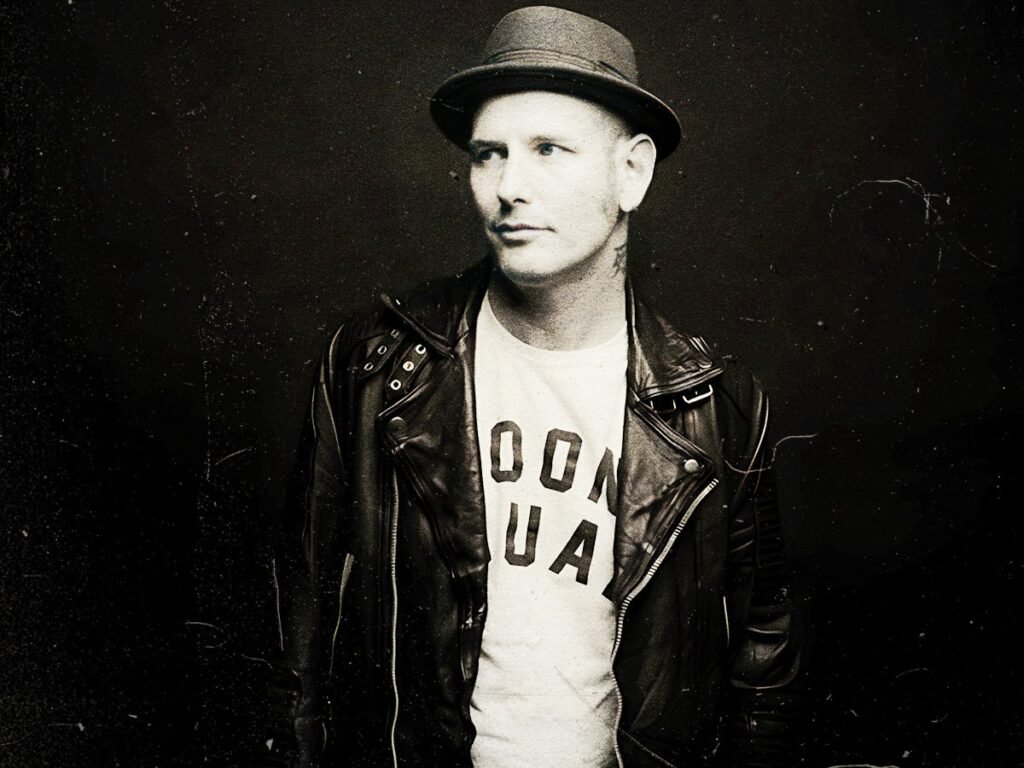
(Credits: Far Out / TIDAL)
The definitions of metal have always felt somewhat ostentatious. Even for people like Corey Taylor, a towering figure in the entire genre, it can feel a little reductive.
Maybe this is because its origin feels a little blurrier than other genres, rising as an offshoot of hard rock and becoming its own thing without even establishing what said ‘thing’ actually entails. A more forward, commanding and aggressive form of basic rock? Maybe. But its vague parameters are why some of its leading players always felt a little restricted by the whole idea.
Like Ozzy Osbourne. As someone whose position in metal has never and will never be questioned, Osbourne himself struggled with the label. He preferred to be described as rock, never really feeling all that close to labels like metal when metal, in his mind, was associated with something far heavier. It also made him feel trapped, which, if we ever learned one thing about the Prince of Darkness himself, it’s that he was never caged in.
“When you get pigeonholed with a certain [genre], it can be very difficult to do something a bit lighter or an acoustic track or whatever you want to do,” the late rocker once said. “Back in the day, it was always just rock music. It’s still just rock music.” His argument makes sense, especially as, now, when we think of metal, our first thoughts usually go to all those whose music teeters on the edge of sonic aggression, like Slayer or Slipknot.
Osbourne once called attention to Iron Maiden as being the quintessential metal band. But maybe it’s not metal itself that has become a “pigeonhole” term; maybe it’s our narrow view of what it’s become that makes it one of the most misunderstood genres in music. Metal, by definition, is music that relies on distortion, heaviness, loudness, and all those other obvious descriptors that have always been its main association.
But expecting only that leaves little room for all those delicious nuances and dynamics that also make it more than worthy of a genre to listen to. Some of the best metal bands are ones that take its core and filter in pop-like melodies, structures and arrangements, twisting metal into something far more fluid, accessible, even, in a way that retains its signature weight (see: Ghost). But when you look at it that way, that’s also reason enough for one of the biggest metal revolutionaries – Metallica – to have earned their worthy crown.
Corey Taylor and countless others, James Hetfield included, have attested to this in the past, time and time again. Calling out Metallica’s holiness as metal innovators isn’t exactly a new phenomenon. And neither is pinpointing Master of Puppets as the moment metal truly arrived as a force. But the popularity of such claims is also why the constant chatter about it is still more than legitimate.
It’s comforting, almost, to look at the cloudiness of other genres and come back to hard rock and metal, knowing that bands like Metallica were so big, loud, and straight-up forthcoming in their presence that no other genre will ever compare when it comes to knowing its own impact. It knows what it is, despite the debate around what defines it, which makes Master of Puppets the non-negotiable pinnacle of everything it stands for.
As Taylor once opined, “Bar none, this is the quintessential metal album. Metallica have melody and ferocious riffs in abundance and every riff, every vocal, every drum beat, every performance, every second of that album is fucking perfect. Top to bottom, it is probably in my top two albums ever made.”
Related Topics

